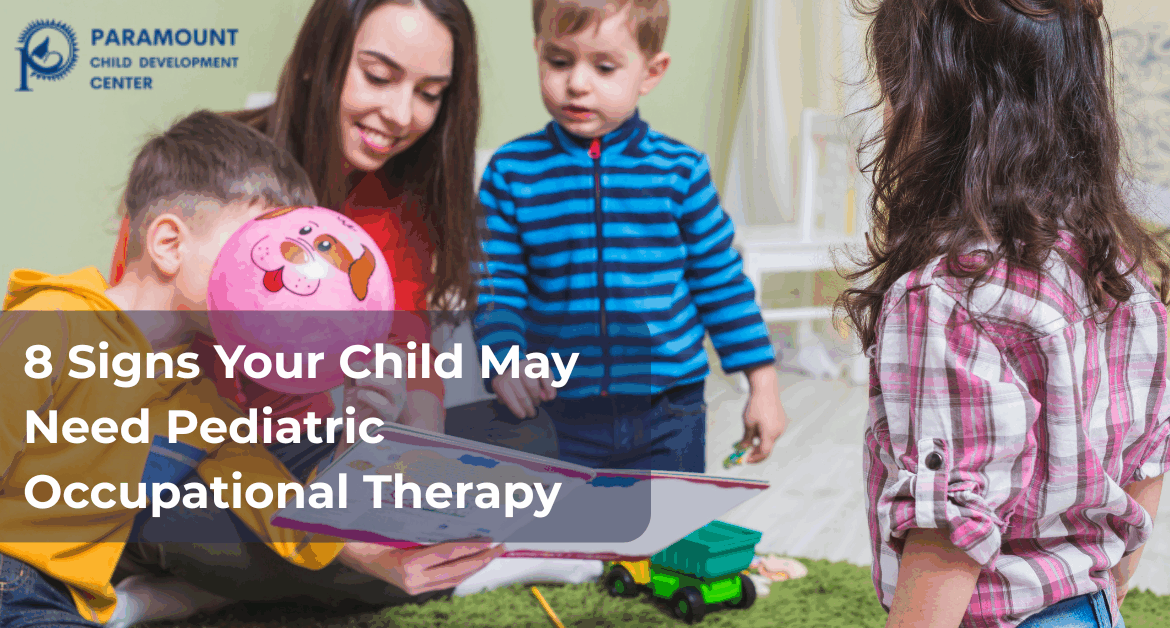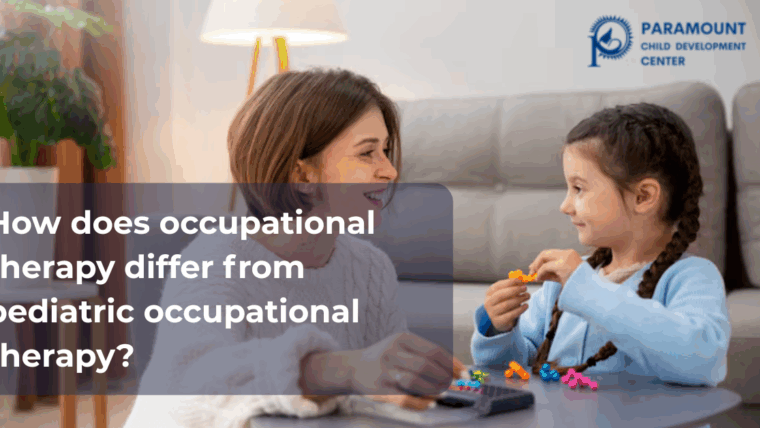As parents, we wish the best for our child. We want the child to grow, learn, and have a simple and confident life. Children, at times, face challenges with daily factivities, and this interferes with their development. Pediatric occupational therapy can be the assistance in correcting such an issue.
On this website, we will discuss 8 signs that your child needs pediatric professional therapy. If your child shows any of the signals below, you can consider hiring the services of a pediatric business doctor to advise and recommend.
What is pediatric professional therapy?
We begin with pediatric occupational therapy before we go ahead and learn about its signs. It is a form of therapy whose primary aim is to assist children in gaining the skills through which they can carry out daily activities on their own. His routine includes dressing, feeding, writing, playing and socialisation.
A child’s professional therapist helps develop fine motor skills (e.g. handle their hands), sensory processing (they react to vision, sound, touch), coordination and thinking and learning.
Why professional therapy is very important for children: Children develop at their own pace, but some will have issues that complicate daily tasks. Issues may be a result of delays in development, injury, sensory processing, or illness.
Pediatric occupational therapy serves to make daily tasks more functional and simpler. It builds confidence, achieves independence, and enables kids to thoroughly participate in school and play.
8 Signs That Your Child May Need Pediatric Occupational Therapy
If you observe your child displaying some of the following indicators, then the time has come for child occupational therapy:
- Fine motor skills difficulty : Is your child having difficulty holding a pencil, buttoning your shirt, or using scissors? Fine motor skills are small hands and finger movements. Issues here can interfere with school work and daily life activities.
- Gross motor skills difficulty : Gross motor skills are large movements such as running, climbing and jumping. The tendency to distance from clumsiness, excessive fall, or physical activities indicates that your child may require a pediatric professional therapist.
- Sensory sensitivity or avoidance : Some children have trouble in processing special sensory information. They can be extremely sensitive to very loud noise, special texture, or light. The complete opposite is when they crave more sensory inputs, such as touching everything and always walking. These behaviors affect their comfort and attention.
- Can not focus and pay attention : If your child has difficulty paying attention during school or activities, learning may be affected. Pediatrics can develop professional therapy concentration and self-regulation skills.
- Difficulty with self-care skills : Dressing, feeding or brushing teeth is also a sign. These skills are important for freedom, and business therapy can present ways to increase them.
- Poor hand-coordination : Activities such as throwing a ball, pulling shapes or solving the puzzle require good hand-eye coordination. If your child is not coordinating or avoiding them, they can be helped by therapy.
- Difficulty Socializing : Sometimes sensory or motor issues can make socializing challenging. Kids may avoid group activities or not be able to read social cues. Occupational therapy can help with social skills as well as physical development.
- Delay in Developmental Milestones : If your child lags behind his peers in milestones like crawling, walking, or speech, intervention by early pediatric occupational therapy will help the child grow and bring him up to the level of a comparable peer.
Pediatric Occupational Therapy: How It Helps
Once the child begins taking occupational therapy, the pediatric occupational therapist:
- Evaluates the child’s strengths and weaknesses
- Encashe a specific plan that addresses skills.
- Use motivating and engaging activities based on a child’s interest
- Educate parents on how to facilitate development at home
- Regularly meet with schools or other carers if necessary
Its purpose is to allow children to join day-to-day activities with less frustration and more success. Should you consult a pediatric professional therapist? If you notice one or more predecessor signs in your child, do not delay in demanding guidance. Early intervention enables children to remove challenges and develop confidence. You begin by discussing this issue with your baby’s doctor, who can recommend a pediatric professional therapist. Physicians mainly practice clinics, schools, or even come to people’s homes.
Tips for Parents
- Monitor your child’s behavior and skills on a regular basis.
- Record any delays or issues.
- Encourage your child to repeat new activities and skills.
- Be patient and supportive—each child learns differently.
- Collaborate closely with therapists and teachers for support.
Conclusion
Pediatric vocational therapy can be an effective tool for children who are failing to perform in their daily lives. Identifying signs that your child requires pediatric professional therapy will help you take time to grow up and remain satisfied. If your child is having difficulties with correct or gross motor skills, sensory processing, attention, self-care, or social contact, a pediatric professional doctor may be consulted for advice. With professional advice, your child can be happy, independent and the skills required to fulfill life.



